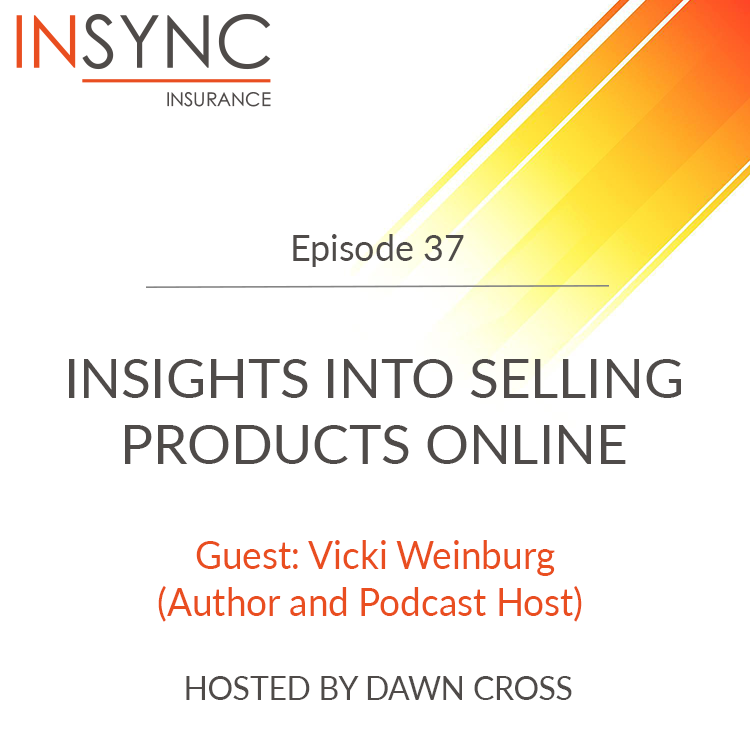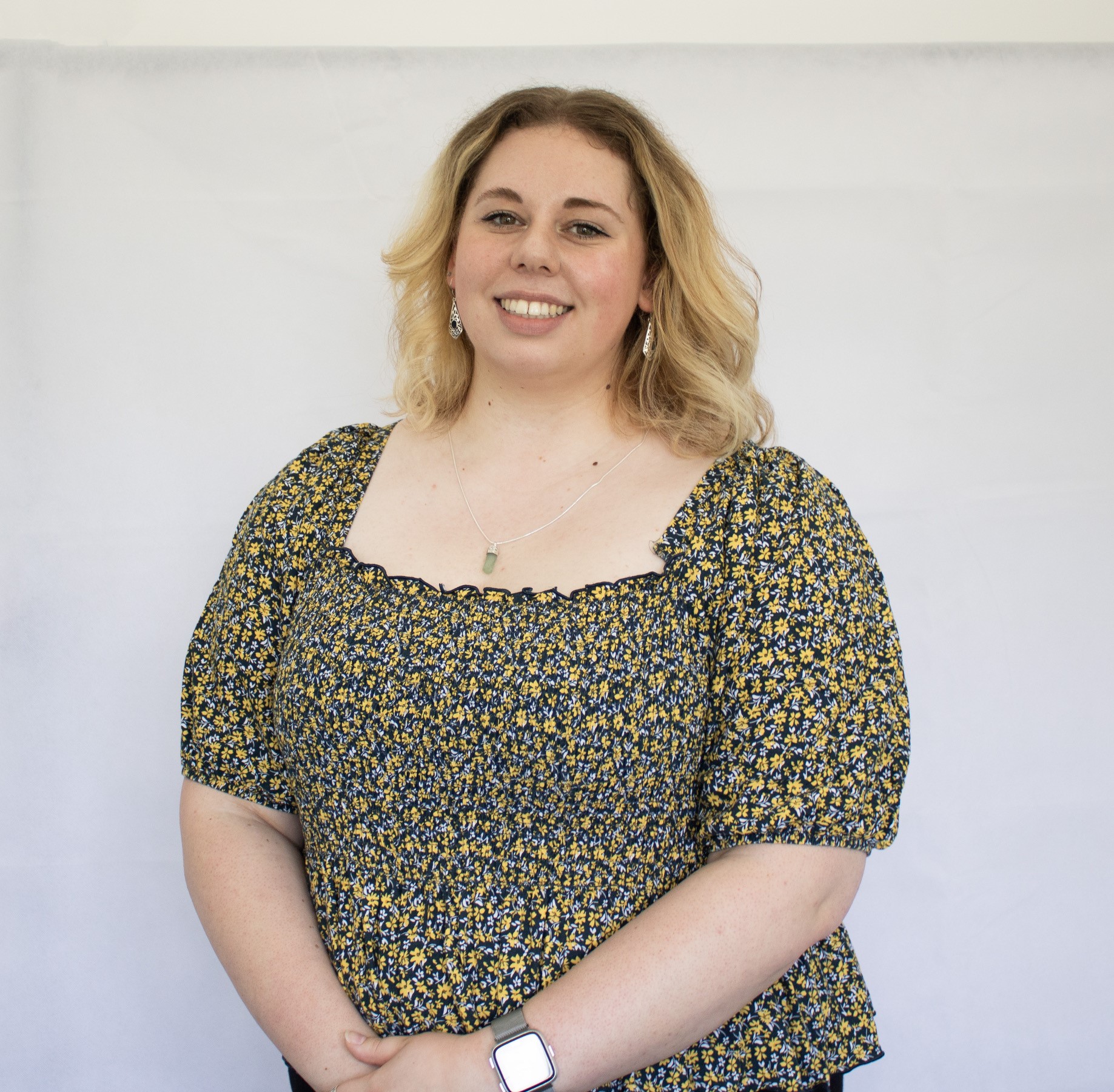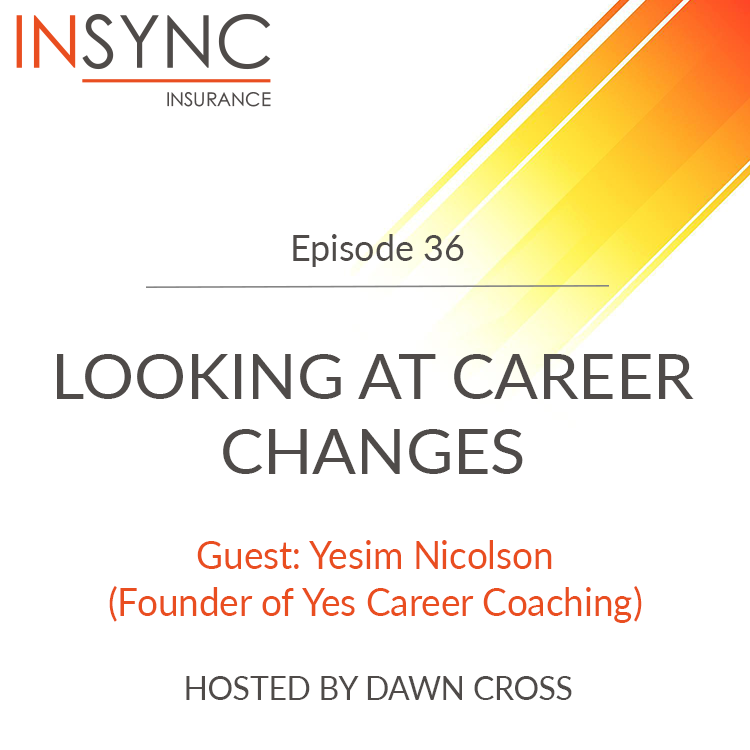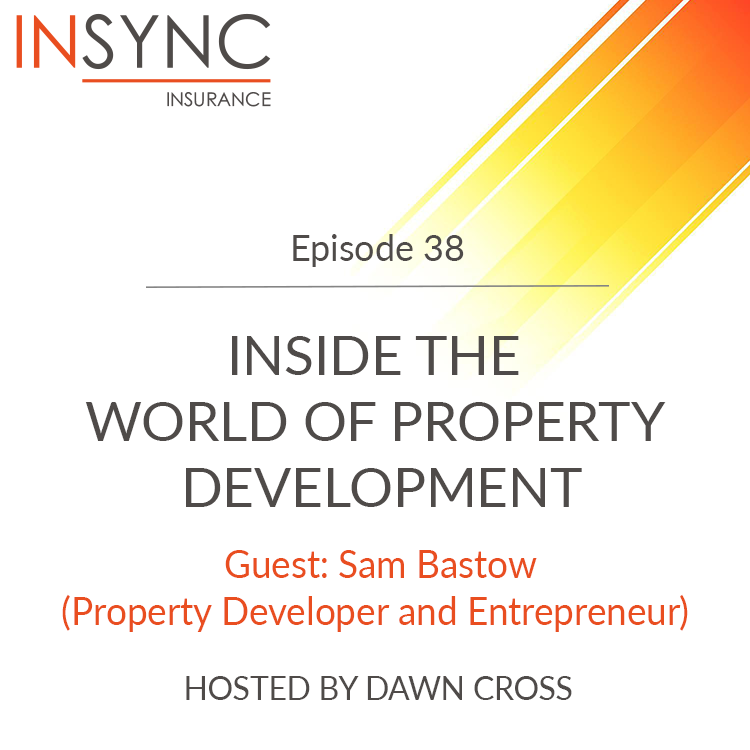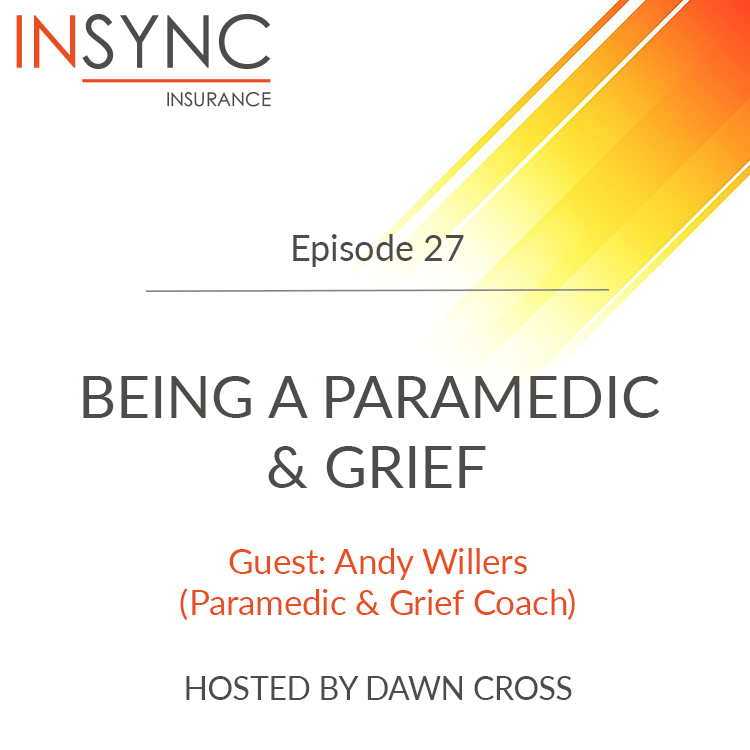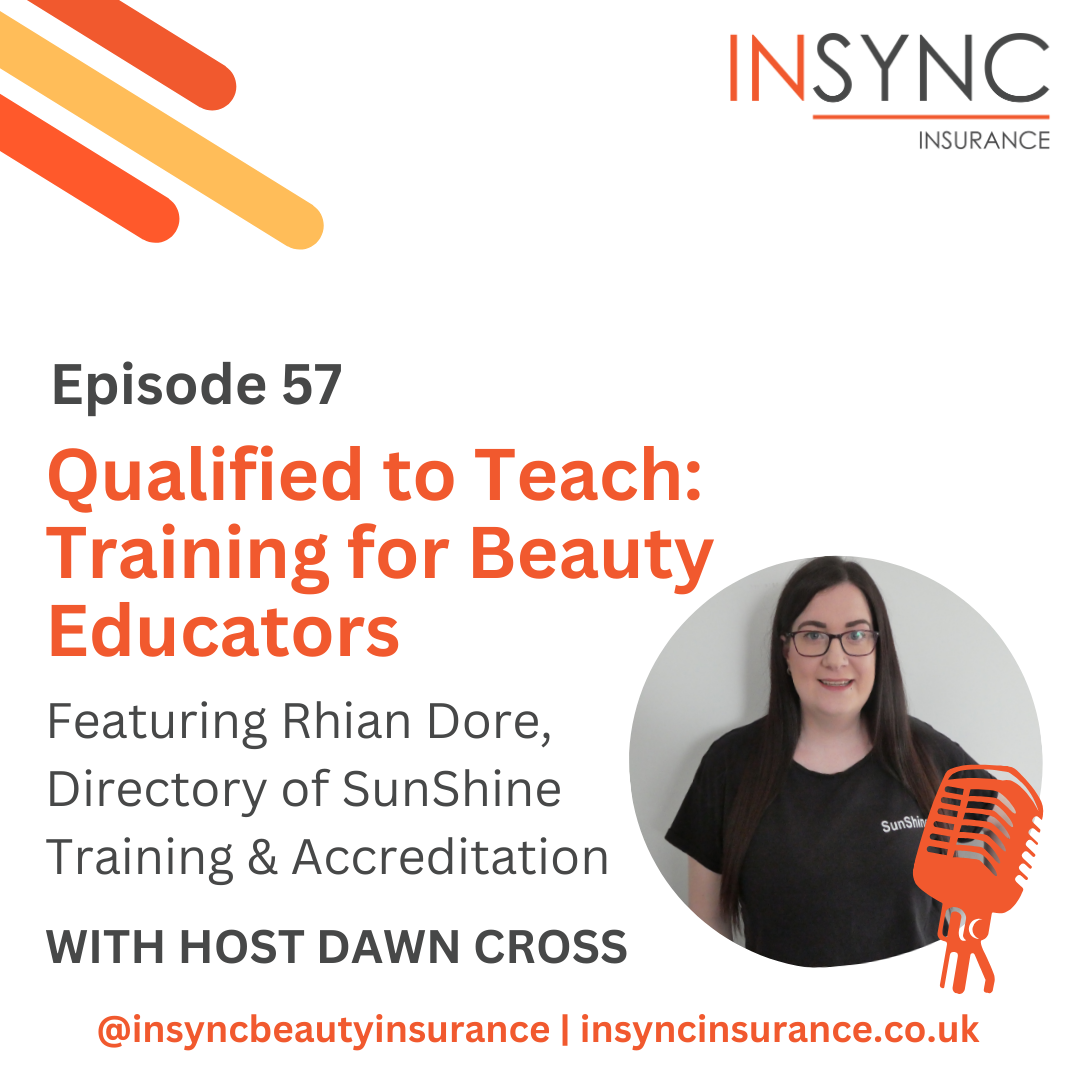Episode Transcript
[00:00:02] Speaker A: Welcome to the NSYNC Assurance podcast. I'm your host, Dawn Cross, and today I'll be discussing selling products online with Vicky Weinberg, author and podcast host of bring your product ideas to life.
If you enjoy our podcast, make sure to leave a rating on your favourite podcast directory.
[00:00:21] Speaker B: Brilliant. So if I could get you to introduce yourself and what you get up to in your business.
[00:00:27] Speaker C: Yeah, of course. So my name is Vicky Weinberg and I, in the shortest possible way, I help businesses to sell their products on Amazon so I can help businesses who have products already that are selling elsewhere and want to get started on Amazon. And I also work with businesses who are on Amazon already but perhaps need help with either some aspect of managing their account or increasing their sales.
[00:00:52] Speaker B: That sounds amazing. How did you get started in that business?
[00:00:56] Speaker C: So it's quite a long story, which I hope is okay. I'll try and make it as possible, which is about, I think it was eight years ago now when I was on maternity leave for my second child. I started my own brand of baby products. I was kind of looking for something to do and I designed a brand of original products which I then found a manufacturer for. And then I started selling online. And originally I was selling on like a Shopify store. And I thought that would be, and I don't know that that was kind of my plan. That was, I thought that would be enough. It's hard to get people onto your website. I found, and then I, you know, I'm looking around for what to do and I decided to start selling them on Amazon. And I did a lot of research into how to do well on Amazon. You know, what's involved.
I was just obsessed with listening to podcasts and stuff on YouTube about selling on Amazon. And so my products went on there. This was like I say, eight years ago. So it was quite different then as well, I have to say it wasn't, it was always a popular marketplace, I know, but not quite as saturated as it is now. So I do want to lead with that because I did very well on Amazon. But I want to be really honest. I think now it's a lot harder. So I do want to be honest about that. But anyway, I started selling my products on Amazon. I did really, really well. Like, I think it was like 90%, 80, 90% of sales coming through Amazon, like so much more than my website.
I tried a few other things, but Amazon was the thing that worked really well for me.
And I do think I understood it quite well. I then would get people coming to me so people that I knew from my networking group saying, oh, I'd like to get my products on Amazon and can you help me do that? And I'd say, yeah, of course. And I was giving people advice and helping them with product listings. And then at some point I just thought, well, actually, I didn't think, my husband said you should actually start charging people for this because you're giving away a lot of time and knowledge for free. And I was, by the way, I was very happy to do so.
But I think he was right. And I think that was kind of, I was kind of pushed a bit more in that direction when COVID happened. Because even though I could continue to sell online during then, I couldn't get any products manufactured. I couldn't get anything shipped over here because my products were made abroad and all the factories were closed. And that's when I really started working with other businesses because at that time, there were a lot of people wanting to get onto Amazon. And as I say, I had, you know, I was running out of things to sell very quickly. And so that's when I think I probably, around the time I started doing.
[00:03:20] Speaker B: This full time, as it were, Valentine's Day is amazing. And I love how you've, you know, been there, done that, and now you can actually share your knowledge, you know, to people. And especially, like you said, you know, it's not exactly easy nowadays because it is so saturated. There's so much going on on there that it's not just as simple as, okay, create some listings, yeah, I'll get some people to buy stuff. And then, you know, there's just so much more involved nowadays. I mean, I can't quite comprehend it personally myself.
[00:03:50] Speaker C: Yeah. And to be honest, the reason I say that, dawn, is because I know that it used to be, it almost was that thing of like, put a listing on Amazon and people find it and buy for it was a lot easier. And the only reason I really want to be clear about the fact that I did have it a lot easier back then is because I think sometimes now I meet people who are really disappointed because they put their products on there and then they go, oh, no one's buying them. And it's not that they've done anything wrong or anything like that. And I don't want people to be disheartened, but I think you need to work harder at getting sales on Amazon now than you used to. And I just want to be really honest about that because it is really disheartening. It's not an easy place to get set up on. Hence why I have a business helping people do that. And it can be really hard when someone spends lots of time, effort, maybe money to get their products on there. And then they think, oh, I'm not getting many sales or I'm not showing up on page one. And honestly, most of the time it's nothing they're doing, it's just that really, really busy and there's a lot on there and then there's a lot of people who've been selling there for a long time as well. And they will always have an advantage because Amazon isn't like your own website, because Amazon as a business wants to make money and so they will prioritize making money, I think, over anything else. And so the people that have been there for ten years and they're guaranteed to make x amount of sales every day, they're always going to be on the top of page one because they're the making the most money. And that sounds very cynical, but I just want to be honest about that because I, yeah, that's a big part of what I do is I want to be honest with people that it won't be for everyone and it will be. And even if it is a good place for your product, there is some work involved. And I just like to be really, yeah, really honest about that upfront because I think it's, it's not a small undertaking getting onto Amazon. And I just think it's good me to be really honest about that and what's involved.
[00:05:40] Speaker B: Yeah, no, definitely. I really agree. So one of my questions for you today is what is kind of the best practice when starting out trying to do an online products business?
[00:05:52] Speaker C: So for online products, so I'll give some advice. I think that applies wherever you're going to sell your products, if that's okay. And that's to do your research before you even get to the stage of starting your business, starting thinking about sourcing your product or designing your product. I think it's really important to spend more time than you think you need to on the research. So is your product idea viable? And then by that I mean are people going to buy it? So is it that you think you've got a good idea or have you actually shared your idea with other people who might have the same, be in the same situation or the same kind of issue and just check that they also think that it's a good idea and that they would pay money for it because, you know, you don't want to sort of forge ahead with something that you think is brilliant. But actually, maybe there were some, I don't want to say flaws, but maybe there were some ways the product could be improved or adjustments that could be made that would make it more viable, if that's a way of saying it. And also to check that there aren't lots and lots of other people selling exactly the same thing. And that doesn't mean that you can't sell the same product as someone else because, I mean, there's only so many original ideas. I don't think there's many things that you could sell now that nobody's ever come up with before. But you have to think about what makes your product different to all of the other products out there because. So I'll give an example. When I. One of the products I used to sell was a baby towel. And at the time, my towel was the biggest and the thickest you could buy in the UK at that time, made out of organic materials and no chemicals.
So that for me, even though, as you can imagine, you can buy soap, you could buy many baby towels, there were just hundreds of them. But at that time I knew mine was bigger and I knew mine was thicker and I knew it was, like I said, it didn't have any chemicals in it. So I had sort of unique selling points or USP's that I could talk about that I knew differentiated mine from the others. Whereas if my towel was a generic copy of others on the market, then I honestly don't think I would have done as well. Because why would someone choose to buy mine over someone else's? So I think just doing that research and thinking about making your product as good as it can be and making sure there is a market for it and making sure that you know how you're going to position your product. So is it a simpler and therefore cheaper version of something that's already out there? Is it more premium? Where does it fit? And how will you talk about your products in relation to others? Because as well as getting your, you know, you've got an idea for product, let's say, as well as getting your product manufactured or sourced, you also have to sell it. And I think thinking about the position of your products before you've even created it will really help you refine what your product is, what it does, who it's for and how you're going to talk about it.
[00:08:35] Speaker B: Yeah, that sounds really key. And as well, like, I think it might be just key to just remember that although there are loads of products in every single sector out there. You know, you can always find something that makes you unique or create like a certain part of the product that can be unique from the others instead of just being like, oh, wow, there's just so many. I give up. And then, you know, you don't get anywhere and you don't make that move. It's like, you know, there's so many different ways you can go about it.
[00:09:02] Speaker C: Absolutely. And it might not be the product, it might be you. And maybe you have make your product or maybe there's something about you and your experience, or maybe it's the brand, maybe it's to do with your packaging, maybe it's to do with you're going to do, and I know lots of organizations that do charitable donations or, you know, you, sometimes you'll see businesses that will plant a tree for every order or buy one, donate one. And I'm not saying you have to do any or all of these things, but I think it's just thinking about what will help you stand out. And it doesn't necessarily have to be the product.
[00:09:35] Speaker B: Yeah, there's so many different aspects. My next question for you is what kind of problems should people account for when going into the online products business?
[00:09:46] Speaker C: Oh, there's quite a lot. And what sort of things? So as I said, I think you can, you can sort of remove hopefully a lot of potential problems by doing that research upfront. And I talk about this all the time because I do think it's that important that you don't just think, oh, I've got an idea, let's go and see who can make it and head off to find manufacturers. I really don't think that's a good idea. I mean, you do need to do that, but spend the time doing the research first and that will take away some of the problems as part of that. The other thing I didn't mention, but I think is important to do that will help prevent future problems is to think about how, when I talked about positioning your products, I also think it's good to think about how much you're going to sell your products for before you think about getting your product made, manufactured, sourced, whatever. The reason I say this is because I've seen people that have run into problems because they've got a project made and it costs, let's say it costs pound five to get it made. And then they say, oh, well, I want, you know, I've got to account for postage and this and that and that. So I have to sell it for. I'm just pulling numbers out of my head. I have to sell it for 15 pounds because otherwise I don't make a decent margin.
But if every other product that's in the same category is priced at twelve pounds, nobody's going to pay three pounds more for a new product just because it costs you x amount to make it, if that makes sense. Unless there's something different about the way it's made. So perhaps, I don't know if it's made by an artisan or it's made by.
I think there are exceptions to that. Maybe it's about how it's made, where it's made, but that, what I'm trying to say is I think that where you can get into trouble is when you price that way around and so you're thinking about trying to get a profit. Whereas I think if you go, okay, I'm looking around and similar products cost this amount of money, but I think mine is slightly better because it has these extra features. So I can price it for this amount or whatever it is. And you think about where your product fits and how, how, what you ideally want to price it for. Then if you go into looking to get it sourced or made, and you already have that in mind, it makes finding a supplier slightly helpful because you'll be able to say, okay, well actually I can't work with them because they can't, you know, the costs don't work or you can start having conversations about, okay, what can I do? You know, this, you, if you find someone that you feel like you can work with, you can have conversations around, well, I, I know I need it to come in around this for me to, you know, what I'm trying to say is you've got a sense of the numbers. You'll kind of know the kind of price that you'll be looking for at the outset for you to make the margin that you want. And if it doesn't, you'll be had to have conversations around, how can we work towards this price? Is it simplifying something? Is it changing a component and make those decisions? But I just think you come from a lot more informed place if you've done all this research. I know I keep coming back to research, but I think it's so important.
[00:12:37] Speaker B: Well, definitely, yeah. And it's, you know, I think doing anything as starting a career change or starting a business in beauty, you know, no matter what kind of what you're trying to do, research is like just the foundation, I think, of everything. So I don't blame you for kind of halfling on about it because, you know, you have to make initial investment as well into the business and, you know, you need to obviously get some products made to get started. And, you know, if you didn't quite do your research right, it can be quite costly, can't it? As well it can.
[00:13:05] Speaker C: And I just think it's heartbreaking when someone spent so much time and money because this research does take a lot of time and I understand that and effort, but it also takes a lot of time and effort to get your products actually in your hands to find someone to manufacture it. Just maybe do prototyping, whatever it is. That can be a long, hard process. And I think it's heartbreaking if you get to the end of that and then you realise there's some kind of flaw that means that your product isn't selling or, or it is selling, but actually you're not making any money. Or perhaps just breaking even.
Especially if with a little bit of planning and preparation, perhaps that situation might be slightly different.
Yeah, and I'm trying to. Yeah, I think for me, I'm trying not to, I'm not trying to make anyone feel bad who hasn't done it that way. Because to be honest, when I launched my first product, I did so many things that I didn't do the second time around as I like, expanded my range. Because the first time around I did have a clue and I made so, so many mistakes. And that's why I'm really passionate about talking about what I've learned because I just think you don't know what you don't know. And, yeah, I think it's just, I'm trying to share as much as I can some things that I learned along the way that I found really helpful because it is a big undertaking, it does take a lot of time and some of the things I'm suggesting do add to the time. But, you know, as you say, you're not going to be able to launch a range of products without putting some money behind it. And I think you can feel a bit more confident about investing if you know, okay, I've done my research and I'm pretty sure this is going to sell and I know I can make a profit. I think if you go into it with, with that knowledge, I think it makes spending or investing that initial money a bit easier.
[00:14:47] Speaker B: Yeah, definitely. So is there anything else you'd like to add before we wrap up the episode today?
[00:14:53] Speaker C: I think I'll just come back to what I was talking about with Amazon, if that's okay, dawn, which is just to say a few things, because I know I've talked about what I do. I help people sell their products on Amazon.
So I think there can be sort of a misconception that that means I think Amazon is amazing. I think it's a great place and everyone should have their products on Amazon. So first of all, I want to say that's not the case. And the reason that's not the case is because I think there are products that do really well and there are products that don't either, because that area is really, really saturated. So, for example, I don't think I would try and sell the products, baby products I was selling years ago. I don't think I would try and sell them on Amazon if I was starting that brand now because like, you know, there were so many baby towels on Amazon. I sold towels, swaddles, baby tableware products and some of my products, if I was looking now, I would say, do you know what? It's so saturated. I don't think I've got enough of a USP for me to make that a go. There are also certain products where people just don't think to go to Amazon. So there is a handmade section on Amazon. But I still think a lot of people, if they're looking for a handmade or personalized product, product they go to not on the high street or Etsy. That's not to say if you sell a product like that, you can't sell on Amazon, but I don't think that should be the main channel where you're putting all of your focus. It might be that you start on Etsy, say, and then you think, okay, let's give Amazon a try. But I wouldn't want you to put all your eggs in the Amazon basket. So I want to be really honest about that, that it won't be for everyone.
And then also just for people to know, as I said right at the beginning, that it isn't the easiest marketplace to get started on for various reasons. It's not very user friendly when you look at the platform behind it, especially compared to eBay, Etsy, all these other marketplaces. And that can surprise people. So I always do like to tell people that so they know what to expect. It can be a bit of a faff. I do think for lots of people and lots of products, it's worth it.
However, I do always say to anyone who's thinking of working with me or even doing it for themselves because you totally can do it yourself. You don't need to work with someone else, but it does take some time and effort to get your products listed. You need to do it really well. It's not something you can just throw up a listing with a bit of text and a couple of photos. People won't find it and they won't buy it. Being really honest, you need to do it really well. And that does take some time and effort. So I just wanted to end with that because I just think it's really useful for people to know because when I first started selling on Amazon, I was listening to podcasts and watching YouTube about all these people saying, oh, I made a million in six months. Maybe not that much, but you know what I mean. And there was a lot, it's a really good way to make a lot of money and it is a way to make money, but it's not going to happen overnight. I think very few sellers are making that sort of money in six months. Being really honest.
[00:17:41] Speaker B: Yeah. And I think as well a lot of people, you know, but even when you're looking at content creators and stuff, people think, oh, it's so easy. And actually there's so much hard work that goes in, in the background that you just don't see and that is very much inclusive. Think a lot of businesses, including selling products online because, you know, you look at kind of like listings on Amazon and, you know, they've got so many keywords, you know, they've got to fill it to the brim with details, you know, answer questions. You've got to keep the upkeep of like, you know, looking at reviews, like looking if people are asking questions, answering them, making sure it's all good. Like, you know, it's not just a whack it up and then, oh yeah. And then the sales will come in. It's like, it's like a constant process, isn't it?
[00:18:20] Speaker C: It really is. So thank you for saying that because it is and there is a lot involved and I hope you don't mind me saying this and obviously edit out if I can't say this, but on my website I have lots of free guides for people as well. Say some really simple few pages about how to get off to a good start, things you need to set up a listing, kind of simple stuff. But I try and make everything very simple so that someone can just download it and see at a glance. Okay, this is what I need. This is what I need to do.
[00:18:48] Speaker B: Now that sounds amazing, actually. And we'll provide like a link to your site as well because it's always great for anyone listening that, you know, there's at least some free resources and then they know as well that if they are finding it really tricky, they can actually come to you for help and advice with your business.
[00:19:02] Speaker C: So yeah, yeah, definitely. Thank you.
[00:19:05] Speaker B: Well, brilliant. Well, thank you so much for setting aside some time today to speak with me. It's been really informative.
[00:19:11] Speaker C: Thank you so much, dawn.
Thank much you to my guests today.
[00:19:15] Speaker A: Vicki Weinberg for chatting about her expertise in selling on Amazon and her advice when getting stuck in. If you're interested in our podcast for coaching services, please click the links in the description.
I have been your host on cross and tune in next week for another episode.
NSYNC is one of the UK's fastest growing insurance providers, offering comprehensive cover for SME's on the self employed across the UK. Our expert team can tailor your insurance to meet your individual business needs and compare prices. From our Lloyds of London approved partners, we offer a five star service and have been FIFO Platinum Trust to winners five years in a row.
